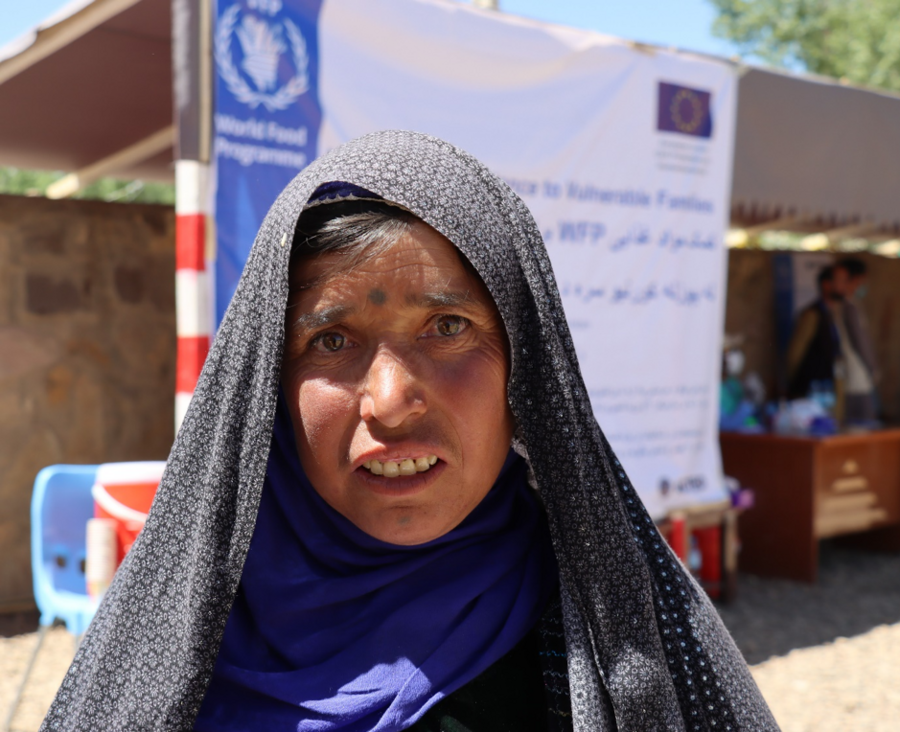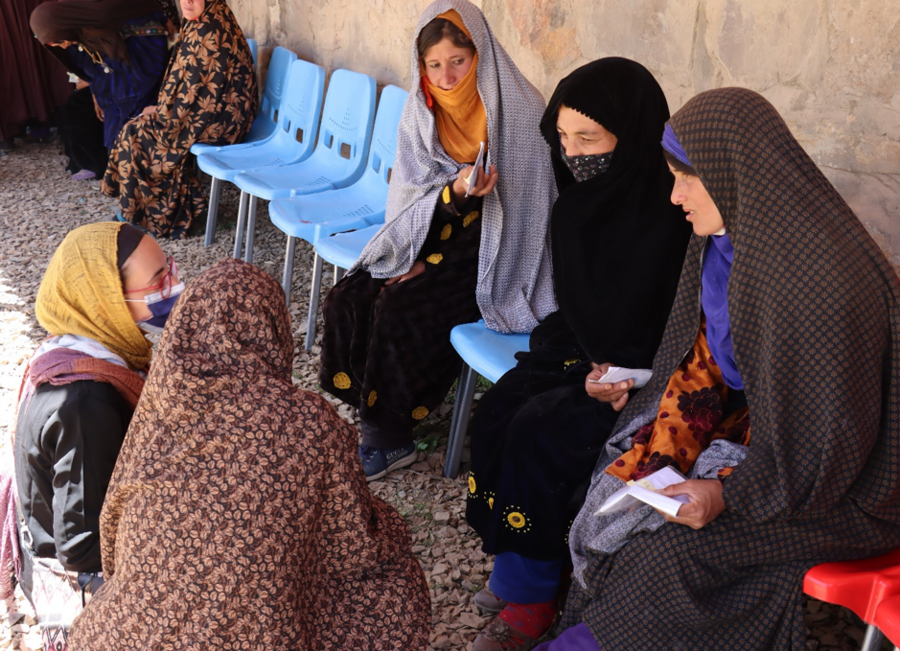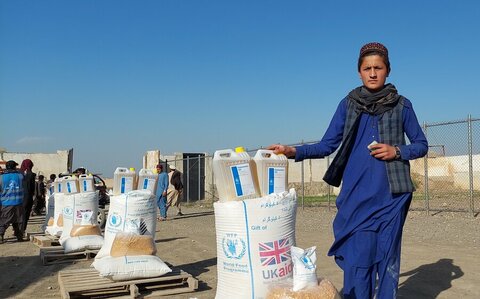‘Keep the world’s attention on Afghanistan’ warns EU humanitarian chief

When we land in Chaghcharan, the provincial capital of Ghor Province, our first impressions are just how remote the province is. Bigger than the Netherlands and with a population of a little more than 1 million people, villages are scattered, and you might not see anyone for miles. In winter, the majority of the province become inaccessible as all roads are buried under snow and ice.
The province has been hit particularly hard by the country’s three droughts over the past five years: leaving farmers and families relying on agriculture for their livelihoods in dire needs. For the first time in Afghanistan since the introduction of the global standard for measuring food insecurity (the Integrated Food Security Phase Classification) more than a decade ago, famine-like conditions have been detected in Ghor – in 20,000 people.
Households face an acute lack of food and would have to resort to desperate coping measures to feed their children such as selling household items and, in the extreme cases, their own children. Immediate action is needed to prevent a further deterioration and a worsening situation in Ghor. The World Food Programme (WFP) is planning to assist 700,000 highly vulnerable people for the next two months, with distributions already under way.

At a distribution site in the centre of Chaghcharan, Marianna Franco, who leads the EU’s Civil Protection and Humanitarian Aid Operations (ECHO) in Kabul, meets with members of communities who tell her that without food assistance they would have had to leave their homes and villages. “I would have either died or I would have had to move,” she recalls Homina saying. “There is no other option, there is no other income opportunity.’’
Homina, 27, has five children. Her husband is a farmer, and the drought has affected their income. For that reason, food assistance from WFP is critical for her family – but when we ask her about other food, she tells us she doesn’t remember when she last ate eggs or meat. The food assistance families receive from WFP is vegetable oil, wheat flour, split peas, and salt. Many people have lost jobs, making it harder to afford other food items.
People had travelled from different settlements to the distribution site with horses, motorbikes, and donkeys. Many are farmers who have been affected by years of drought. Ghulam Farooq, 63 years old lost most his yield and crops to the drought over the last few years and WFP food assistance is a lifeline for family.
Marianna is a humanitarian worker who first came to work in Afghanistan almost 16 years ago. She is now back heading the European Union’s humanitarian aid office in the country.
The important role of donors in Afghanistan

“It is heart-breaking to hear from women who talk about reverting to irreversible coping mechanisms, because they have no other means of survival,” she says.
‘’When you hear ‘I had to sell my son, because I had many more children to feed’, this is something you cannot even comprehend what people are going through. If I put myself in their shoes, what we would do if we were them?"
She adds: “But this is a strong community, their resilience and day to day approach is extraordinary. They told me that even now there is no conflict, there is no food, and they have nothing to eat."
“We need to keep the attention on Afghanistan. Now, more than ever we need to continue the level of assistance that has been provided, if possible, scale up where we can, and if possible, diversify their assistance as well.”
WFP has received almost US$90 million in funding from ECHO to provide emergency food and nutrition assistance to some of Afghanistan’s most vulnerable families. Since January, WFP has provided 18 million people in Afghanistan with lifesaving food and nutrition assistance across 34 provinces, thanks to the generosity of donors such as the EU.
In addition to monthly food, the EU humanitarian aid funding is also helping to keep the WFP-managed United Nations Humanitarian Air Service operating, a critical enabler for the humanitarian response in Afghanistan. This year, UNHAS has carried out 1,544 flights and has transported 10,373 humanitarian workers to 20 destinations across the country – reaching Chaghcharan twice a week.


